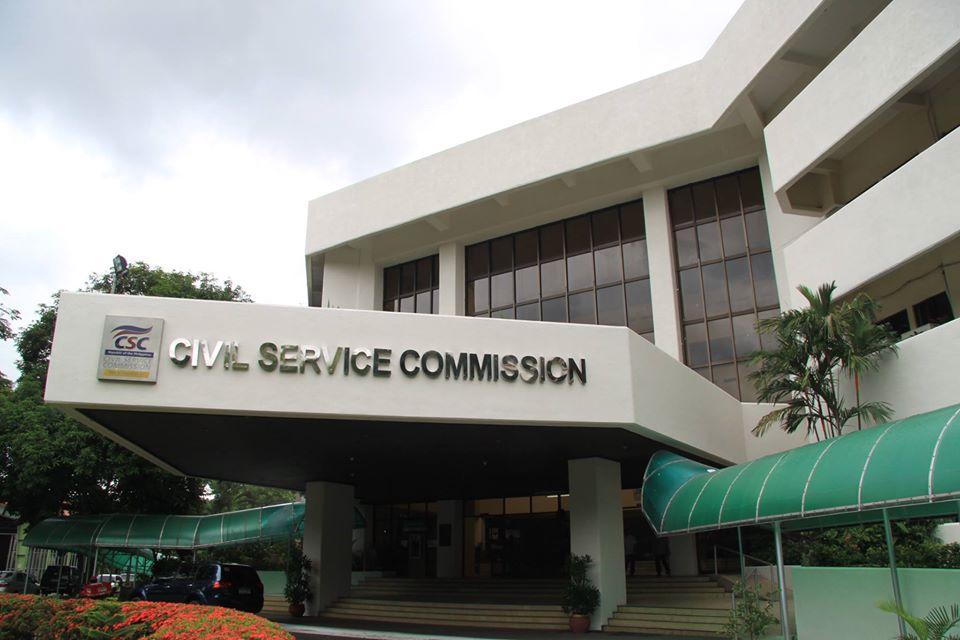CSC approves flexible work arrangements in gov't offices

The Civil Service Commission (CSC) said that flexible work arrangements in government offices may be adopted starting June 15 as part of the nationwide effort to transition from a state of public health emergency to the new normal.
In a statement, CSC said that the policy will cover 1.7 million government employees, regardless of the status of appointment, as a parallel policy to the Telecommuting Law of the private sector.
The policy aims to improve workers’ work-life balance, utilize information and communications technology for remote work, and provide reasonable work arrangements for vulnerable employees.
“It serves as a preventive measure to safeguard the health, safety, and welfare of government officials and employees while ensuring the government’s continued operations and efficient delivery of public services,” the CSC said.
“The CSC is confident that greater flexibility will lead to increased productivity as the work environment becomes more responsive to employees’ unique individual needs,” it added.
Per CSC Resolution No. 2200209, which takes effect fifteen days after its publication or on June 15, flexible work arrangements include:
- Flexiplace, wherein officials and employees may be authorized to render services away from their office;
- Compressed work week, in which the 40-hour work week is compressed into four (4) days or less, instead of five (5);
- Skeleton workforce, where a minimum number of personnel will be required to report to the office when full staffing is not possible;
- Work shifting for agencies required by law to operate 24/7 or agencies required to observe workplace health and safety protocols;
- Flexitime, where employees are allowed to report between 7 a.m. to 7 p.m. provided they complete the required 40-hour workweek; and
- Combination of flexible work arrangements that may be adopted by an agency according to what is appropriate or applicable to its mandate and functions.
The CSC, however, emphasized that flexible work arrangements remained subject to the agency’s head with the condition that all their stakeholders are assured of continuous delivery of services from 8 a.m. to 5 p.m.
It added that adoption of the guidelines may be allowed on a regular or recurring basis, situational, or for medical reasons.
Delivery of gov’t services
Meanwhile, agencies are instructed to ensure that the delivery of government services, programs, as well as projects will not be negatively affected, delayed, or hampered by the adoption of flexible work arrangements.
They are also tasked to draw up their internal guidelines on the chosen flexible work arrangements and incorporate the same in their public service continuity plans.
Moreover, government offices are mandated to adopt performance standards and timelines based on Republic Act No. 11032 or the Ease of Doing Business and Efficient Government Service Delivery Act of 2018, and in consonance with approved work plans and targets.
Further, they shall ensure that support mechanisms are in place and employees are provided equal opportunities in terms of awards, promotions, and training.
“Monitoring mechanisms for daily or weekly reports, use of teleconferencing platforms for meetings or assemblies, and reasonable and appropriate security measures may be adopted by agencies to ensure confidentiality of official documents and information in compliance with Republic Act No. 10173 or the Data Privacy Act of 2012,” the CSC said.
To recall, CSC Commissioner Aileen Lizada said that they were making alternative and flexible work arrangements for government employees permanent.
Lizada said the flexi-workplace plan would be implemented even without a pandemic.
The Metro Manila Development Council earlier proposed a schedule of work in government offices located in the National Capital Region starting from 7 a.m. to 4 p.m. to lessen the volume of traffic during rush hours. — DVM, GMA News



